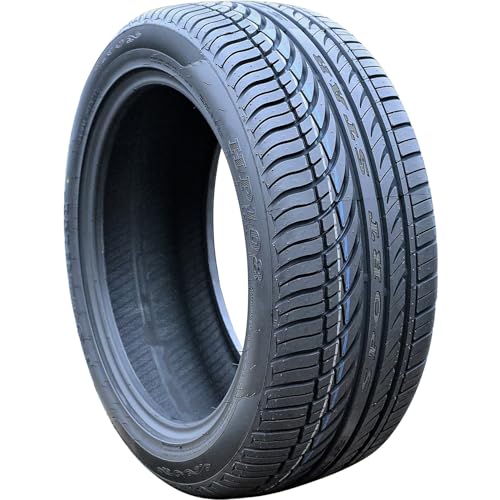Choosing the right engine oil for your Toyota is crucial. It ensures optimal performance and longevity.
Table of Contents
ToggleWhen it comes to maintaining your Toyota, one key aspect is selecting the right engine oil. The engine oil you use impacts the car’s performance, fuel efficiency, and overall lifespan. But with many options available, it can be confusing to know which one is best.
In this guide, we will help you understand the recommended engine oils for different Toyota models. We will also explain why these oils are preferred and how they benefit your car. By the end of this article, you’ll have a clear idea of which engine oil is best for your Toyota. Let’s get started.
Importance Of Engine Oil
Engine oil is crucial for the health of your Toyota. It lubricates the engine’s moving parts. This reduces friction and prevents wear. Without proper lubrication, engines can overheat and seize up. Regular oil changes ensure your Toyota runs smoothly.
Choosing the right engine oil can impact your car’s performance and longevity. Let’s dive into how engine oil affects these areas.
Role In Engine Performance
Engine oil keeps the engine parts well-lubricated. This reduces friction and allows parts to move smoothly. It also helps to cool the engine by carrying heat away from the moving parts. Clean oil ensures that the engine runs efficiently and performs at its best. Poor quality or dirty oil can lead to sluggish performance.
Impact On Longevity
Using the correct engine oil extends the life of your Toyota. It prevents the buildup of sludge and deposits. This keeps the engine clean and running efficiently. Regular oil changes remove contaminants and help maintain engine health. A well-maintained engine can last many more miles.
In conclusion, using the right engine oil is vital for your Toyota. It enhances performance and extends the engine’s life. Always refer to your owner’s manual for the recommended oil type.
Types Of Engine Oil
Choosing the right engine oil for your Toyota is essential. Different types of oil cater to different engine needs. Here, we’ll explain the main types of engine oil you might consider.
Conventional Oil
Conventional oil is the most basic type. It’s made from natural crude oil. This oil is ideal for older engines. It is also less expensive. However, it may not offer the same protection as synthetic oils.
Synthetic Oil
Synthetic oil is made from chemical compounds. It offers better protection and performance. It’s designed for modern engines and extreme conditions. Synthetic oil can improve fuel efficiency and extend engine life.
Blended Oil
Blended oil is a mix of conventional and synthetic oils. It provides a balance of performance and cost. This type of oil offers better protection than conventional oil. It is also less expensive than full synthetic oil.
| Oil Type | Advantages | Disadvantages |
|---|---|---|
| Conventional Oil |
|
|
| Synthetic Oil |
|
|
| Blended Oil |
|
|
Toyota’s Recommended Oil Grades
Choosing the right engine oil for your Toyota is essential for optimal performance and longevity. Toyota recommends specific oil grades to ensure your engine runs smoothly and efficiently. Understanding these recommendations can help you make informed decisions about your vehicle’s maintenance.
Understanding Oil Viscosity
Oil viscosity is a measure of the oil’s resistance to flow. It is important because it affects how well the oil can protect your engine. Viscosity is indicated by a number followed by the letter “W” (which stands for winter) and another number. For example, 5W-30.
The first number indicates the oil’s thickness at low temperatures. The lower the number, the thinner the oil. Thinner oil flows better in cold weather. The second number indicates the oil’s thickness at high temperatures. Thicker oil provides better protection at high temperatures.
Commonly Used Grades
Toyota vehicles commonly use a few specific oil grades. Here is a table with some of the most common grades and their typical applications:
| Oil Grade | Typical Use |
|---|---|
| 0W-20 | Used for fuel efficiency and cold weather performance |
| 5W-30 | Commonly used for most Toyota models |
| 10W-30 | Used in older Toyota models or in warmer climates |
Always refer to your vehicle’s owner manual for the recommended oil grade. Using the correct oil ensures your engine stays protected and performs at its best.

Credit: www.ebay.com
Choosing The Right Oil For Your Toyota
Choosing the right oil for your Toyota is essential. It ensures the engine runs smoothly and lasts longer. With many options available, it can be overwhelming to select the best one. Here, we will guide you through the key considerations for picking the right oil for your Toyota.
Consulting The Owner’s Manual
Your first step should always be consulting the owner’s manual. The manual contains specific details about the type of oil recommended for your model. Toyota engineers have designed the engine to work optimally with a certain type of oil. Using the recommended oil type ensures that your engine performs at its best. The manual will also inform you about the oil change intervals.
Climate And Driving Conditions
The climate and driving conditions you experience can also influence your choice of engine oil. In colder climates, thinner oils like 0W-20 are often recommended. They flow more easily in cold temperatures. In warmer climates, thicker oils like 5W-30 may be more suitable. They provide better protection at higher temperatures.
Consider your driving habits as well. If you frequently drive in stop-and-go traffic, your engine may require a more durable oil. If you use your Toyota for towing or heavy loads, you might need an oil that can handle higher stress levels.
| Climate | Recommended Oil |
|---|---|
| Cold | 0W-20 |
| Moderate | 5W-20 |
| Hot | 5W-30 |
By understanding these factors, you can make an informed decision. This will help in maintaining your Toyota’s engine health and performance.
Benefits Of Using Toyota-approved Oil
Using the right engine oil is crucial for your Toyota. Toyota-approved oils offer many benefits that keep your car running smoothly. This section explores the advantages of using these specific oils.
Enhanced Engine Protection
Enhanced engine protection is one of the key benefits. Toyota-approved oils are designed to protect the engine’s internal parts. They reduce wear and tear, extending the life of your engine.
These oils also have the right viscosity. This ensures that the oil flows smoothly at different temperatures. It prevents engine parts from grinding against each other.
| Feature | Benefit |
|---|---|
| Proper Viscosity | Reduces wear and tear |
| Specific Additives | Protects engine parts |
Improved Fuel Efficiency
Another benefit is improved fuel efficiency. Toyota-approved oils help the engine run more smoothly. This means your car uses less fuel.
When the engine runs efficiently, it burns fuel more effectively. This leads to better mileage. Over time, this can save you money on fuel costs.
- Smoother engine operation
- Less fuel consumption
- Better overall performance
Using Toyota-approved oil means fewer trips to the gas station. It’s a win-win for both your wallet and your car.
How Often To Change Engine Oil
Toyota recommends changing engine oil every 5,000 to 10,000 miles, depending on driving conditions. Use 0W-20 synthetic oil for most models. Regular oil changes ensure a long engine life.
Regular oil changes are vital for your Toyota’s performance. They keep the engine running smoothly. But how often should you change the oil? Let’s explore some key points.Manufacturer’s Guidelines
Toyota recommends following the owner’s manual for oil change intervals. Typically, newer models suggest oil changes every 5,000 to 10,000 miles. This depends on driving conditions and oil type. Always consult the manual for your specific model.Signs It’s Time For A Change
Sometimes, your car shows signs it needs an oil change. Watch for dark, dirty oil. It should be amber and clear. Listen for unusual engine noises. They can indicate oil issues. Pay attention to the oil change light. It’s a clear signal. Also, if you notice a burning smell, it’s time for a change. “`Diy Oil Change Tips
Changing your Toyota’s engine oil yourself can be rewarding. It saves money and gives you control over your car’s maintenance. Here are some DIY oil change tips to guide you through the process.
Necessary Tools And Materials
Gathering the right tools and materials is essential. Make sure you have:
- Wrench set
- Oil filter wrench
- Drain pan
- Funnel
- New oil filter
- Recommended engine oil
- Gloves
- Rags
Step-by-step Process
Follow these steps to change your Toyota’s oil:
- Park your car on a level surface. Turn off the engine.
- Place the drain pan under the oil drain plug.
- Use a wrench to remove the drain plug. Let the oil drain.
- Once drained, replace the drain plug. Tighten it securely.
- Remove the old oil filter using the oil filter wrench.
- Lubricate the new oil filter’s gasket with a bit of oil.
- Screw the new oil filter in place. Hand-tighten it.
- Remove the oil cap on the engine. Insert the funnel.
- Pour the recommended amount of new oil into the engine.
- Replace the oil cap. Start the engine and let it run for a minute.
- Check the oil level using the dipstick. Add more oil if needed.
- Dispose of the old oil and filter properly.
Changing your oil is simple with these steps. Enjoy a smooth-running Toyota!

Credit: toyota.com.ph
Common Myths About Engine Oil
When it comes to choosing the right engine oil for your Toyota, there are many myths and misconceptions. These myths can lead to confusion and may result in using the wrong type of oil. Let’s debunk some of the most common myths about engine oil.
Synthetic Vs. Conventional
One of the biggest myths is that synthetic oil is always better than conventional oil. This is not always true. Both types of oil have their pros and cons.
Synthetic oil is engineered to provide better performance in extreme temperatures. It offers better protection and can last longer between oil changes. This makes it ideal for high-performance engines.
Conventional oil is less expensive and works well for most everyday driving conditions. It’s a great choice for older vehicles or those with lower mileage.
So, which one is better for your Toyota? It depends on your driving habits and your vehicle’s needs. Always check your owner’s manual for the manufacturer’s recommendation.
Oil Additives
Another common myth is that oil additives can improve engine performance. While some additives can provide benefits, they are not always necessary.
Most modern engine oils already contain a blend of additives. These additives help to clean, protect, and enhance the oil’s performance. Adding extra additives can sometimes do more harm than good.
It’s important to use the right oil for your Toyota and trust that it contains the necessary additives. Overloading your oil with extra additives can lead to sludge buildup and other issues.
In summary, the best way to ensure your Toyota runs smoothly is to use the oil recommended by the manufacturer. Avoid falling for myths and stick to trusted sources of information.

Credit: toyota.com.ph
Frequently Asked Questions
What Kind Of Oil Does Toyota Recommend?
Toyota recommends using 0W-20 synthetic oil for most of their newer models. Always check your owner’s manual for specifics.
Can I Use 5w-30 In My Toyota Corolla?
Yes, you can use 5W-30 oil in your Toyota Corolla. Always check your owner’s manual for specific recommendations.
Can I Use 5w20 Instead Of 0w20 Toyota?
Yes, you can use 5w20 instead of 0w20 in a Toyota. Both oils have similar viscosities. However, always check your owner’s manual for manufacturer recommendations.
Is The Toyota 10w30 Synthetic?
Yes, Toyota 10W30 oil is available as synthetic. Check the product label to confirm if it’s synthetic or conventional.
Conclusion
Choosing the right engine oil for your Toyota is crucial. It ensures smooth performance and longevity. Always check your owner’s manual for specific recommendations. Use synthetic oil for better protection. Regular oil changes keep your engine healthy. Remember, proper maintenance saves money in the long run.
Don’t ignore oil quality and type. It impacts engine efficiency and lifespan. Keep your Toyota running like new with the right oil. Happy driving!
{ “@context”: “https://schema.org”, “@type”: “FAQPage”, “mainEntity”: [ { “@type”: “Question”, “name”: “What kind of oil does Toyota recommend?”, “acceptedAnswer”: { “@type”: “Answer”, “text”: “Toyota recommends using 0W-20 synthetic oil for most of their newer models. Always check your owner’s manual for specifics.” } } , { “@type”: “Question”, “name”: “Can I use 5W-30 in my Toyota Corolla?”, “acceptedAnswer”: { “@type”: “Answer”, “text”: “Yes, you can use 5W-30 oil in your Toyota Corolla. Always check your owner’s manual for specific recommendations.” } } , { “@type”: “Question”, “name”: “Can I use 5w20 instead of 0w20 Toyota?”, “acceptedAnswer”: { “@type”: “Answer”, “text”: “Yes, you can use 5w20 instead of 0w20 in a Toyota. Both oils have similar viscosities. However, always check your owner’s manual for manufacturer recommendations.” } } , { “@type”: “Question”, “name”: “Is the Toyota 10W30 synthetic?”, “acceptedAnswer”: { “@type”: “Answer”, “text”: “Yes, Toyota 10W30 oil is available as synthetic. Check the product label to confirm if it’s synthetic or conventional.” } } ] }







